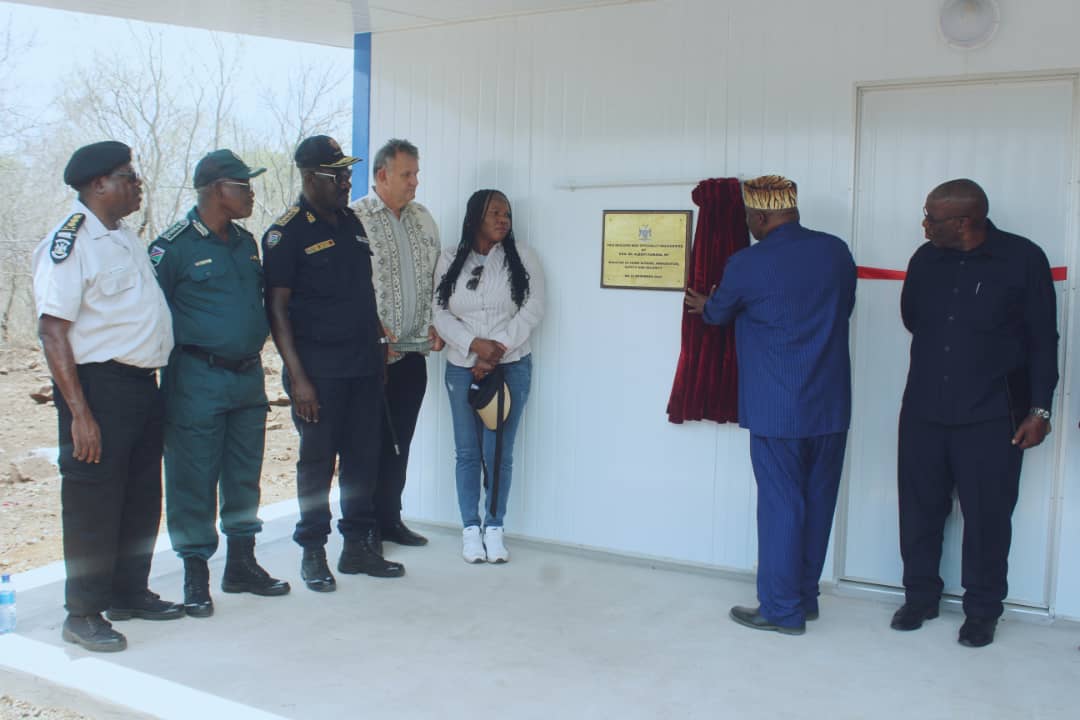Hyphen Hydrogen Energy’s chief executive, Marco Raffinetti, says disclosing information on the company’s agreements with the government would be detrimental to the development of its green hydrogen project.
This comes amid rising criticism of the lack of transparency around the government’s collaboration with Hyphen, with civil society intensifying its demands for complete disclosure of the feasibility and implementation agreement signed with the company in March.
Institute for Public Policy Research (IPPR), executive director Graham Hopwood recently said there is a need for a joint letter to the Presidency demanding the publication of this agreement.
“Secrecy allows corruption to take place. Public confidence in the project depends on public transparency and accountability,” he said at a recent civil society workshop on green hydrogen.
The workshop also addressed concerns about Hyphen’s lack of consultation with members of civil society.
“In a competitive world it would be irresponsible and to the detriment of the development of the Hyphen project and Namibia’s broader green hydrogen industry to publish commercially sensitive agreements in the public domain which competitor projects or countries could use to compete with Namibia,” Raffinetti says.
He says the green hydrogen sector is characterised by fierce competition, involving the mobilisation of substantial funding of billions of dollars, as countries vie to gain a competitive edge by securing early market entry and attracting investment.
Raffinetti says Oman is the only other nation which has conducted competitive tender procedures for state land allocation and has engaged in concession agreements for the advancement of green hydrogen initiatives.
“None of these concession agreements have been published,” he says.
He says in the disclosures and public stakeholder engagements to date, Hyphen has done more than any other industry or project in Namibia in terms of transparency and engagement.
“For example, to the best of Hyphen’s knowledge, none of the agreements (or even summaries of them) have been placed in the public domain in relation to the oil and gas agreements in place with the likes of Total, Shell and Chevron as they develop their oil and gas prospects.
“The same applies to the diamond mining and uranium industries,” Raffinetti says.
Hyphen has provided summaries outlining the essential commercial aspects of the feasibility and implementation agreement, as well as the project’s development and implementation process over its life cycle.
As per the information available on Hyphen’s website, it is the government’s responsibility to enact the requisite legal and fiscal regulations necessary for project implementation.
On the other hand, Hyphen is tasked with managing the technical, financial, environmental, social and commercial aspects of the project’s execution.
Raffinetti says Hyphen has prepared an initial draft of a stakeholder engagement plan for the environmental process in accordance with Namibian legislation and in compliance with global best practice.
He says once these plans have been finalised, they will be shared with interested and affected parties.
“Due to the size and complexity of the project and the sensitivity of the receiving environment, Hyphen, together with its environmental advisers and other third-party specialists, is looking to introduce stakeholder engagement processes that go beyond the stakeholder engagement typically used for smaller projects,” Raffinetti says.
Stay informed with The Namibian – your source for credible journalism. Get in-depth reporting and opinions for
only N$85 a month. Invest in journalism, invest in democracy –
Subscribe Now!






